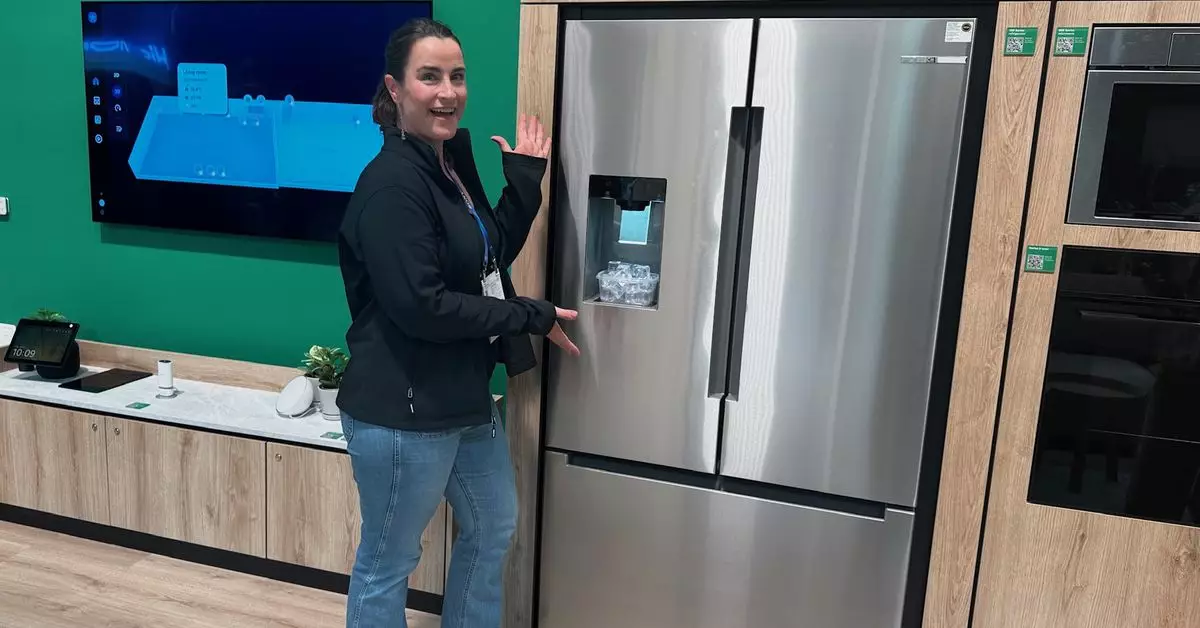In the landscape of smart home technology, the introduction of Matter-enabled appliances marks a significant shift towards greater interoperability and user convenience. Bosch, the well-known home appliance manufacturer, recently made waves at CES with the unveiling of its first Matter-enabled product—the 100 Series French Door Bottom Mount Refrigerator. As we delve deeper into its features, significance, and future implications for smart home ecosystems, it becomes clear that Bosch is charting a new course for connected appliances.
At its core, Matter is a revolutionary protocol designed to enhance device compatibility within smart homes. This open-source connectivity standard aims to establish a universal language that enables devices from different manufacturers to seamlessly communicate without depending on potentially insecure cloud connections. Developed collaboratively by major industry players including Apple, Amazon, Google, and Samsung, Matter supports a wide range of devices from lighting systems to smart refrigerators, and its emergence represents a pivotal moment for consumers who desire a cohesive smart home experience.
Bosch’s decision to adopt Matter technology for its appliances reflects a growing recognition of the need for streamlined smart home integration. By embedding Matter support into their products, Bosch not only enhances operational reliability but also empowers users to control their appliances through various platforms. This capability allows consumers greater flexibility and adaptability in their smart home configurations, tailoring their experience to fit personal preferences.
Bosch’s 100 Series refrigerator boasts a retail price of $2,500 and integrates capabilities that elevate it beyond traditional refrigerators. Anticipated to be available in the United States by spring, this innovative appliance includes a built-in chip that supports Matter functionality. One of the standout features of this refrigerator is its ability to remotely control settings, such as temperature management, and provide notifications through smart home platforms. For instance, users can receive alerts if the refrigerator door is left open, a feature that fosters energy efficiency and reduces food spoilage.
Moreover, an exciting firmware update is projected for this summer, allowing the 100 Series to work with Matter 1.3. This version emphasizes local connectivity, promising not only speedier communication between devices but also enhanced security. Such advancements are fundamental as consumers grow increasingly concerned about privacy in their smart home environments.
Eelco Lammertink, representing Bosch’s parent company BSH, has revealed an ambitious roadmap for expanding Matter compatibility across the Bosch and Siemens appliance lines. This initiative is set to bring Matter-enabled refrigerators this year, followed by one additional product category next year, and a further three by 2026. While current compatibility is limited to select platforms like Samsung SmartThings and Home Assistant, there is optimism for broader integration, with Amazon’s Echo and Alexa expected to support these appliances soon. However, the waiting game continues for other major platforms like Google Home and Apple Home, leaving users with a somewhat fragmented smart home ecosystem.
Despite the excitement surrounding new Matter-compatible devices, Lammertink has voiced challenges in retrofitting existing appliances to support this new standard. Citing concerns about potentially “bricking” appliances, he noted that updates to current models would not be feasible. This highlights a critical juncture for consumers: while new products promise innovation, existing owners of established appliances may find themselves left behind in the tech race.
In addition to connectivity improvements, Bosch is also eyeing advanced energy management capabilities for its Matter-enabled appliances. The goal is to incorporate energy reporting features that allow users to monitor and control the energy consumption of their refrigerators, thus enabling them to integrate these devices into holistic home energy management systems. This pivotal step could be instrumental in supporting sustainable living practices, allowing homeowners to make informed decisions regarding energy use.
As the smart home landscape continues to evolve, the introduction of Matter-enabled appliances like Bosch’s 100 Series refrigerator sets a promising precedent. The focus on interoperability, security, and sustainability positions Bosch not just as a manufacturer, but as a key player in the future of smart home technology. With comprehensive plans for future products, the possibilities are extensive—leading to a smarter, more connected world in which consumers can truly harness the potential of their appliances.


Leave a Reply